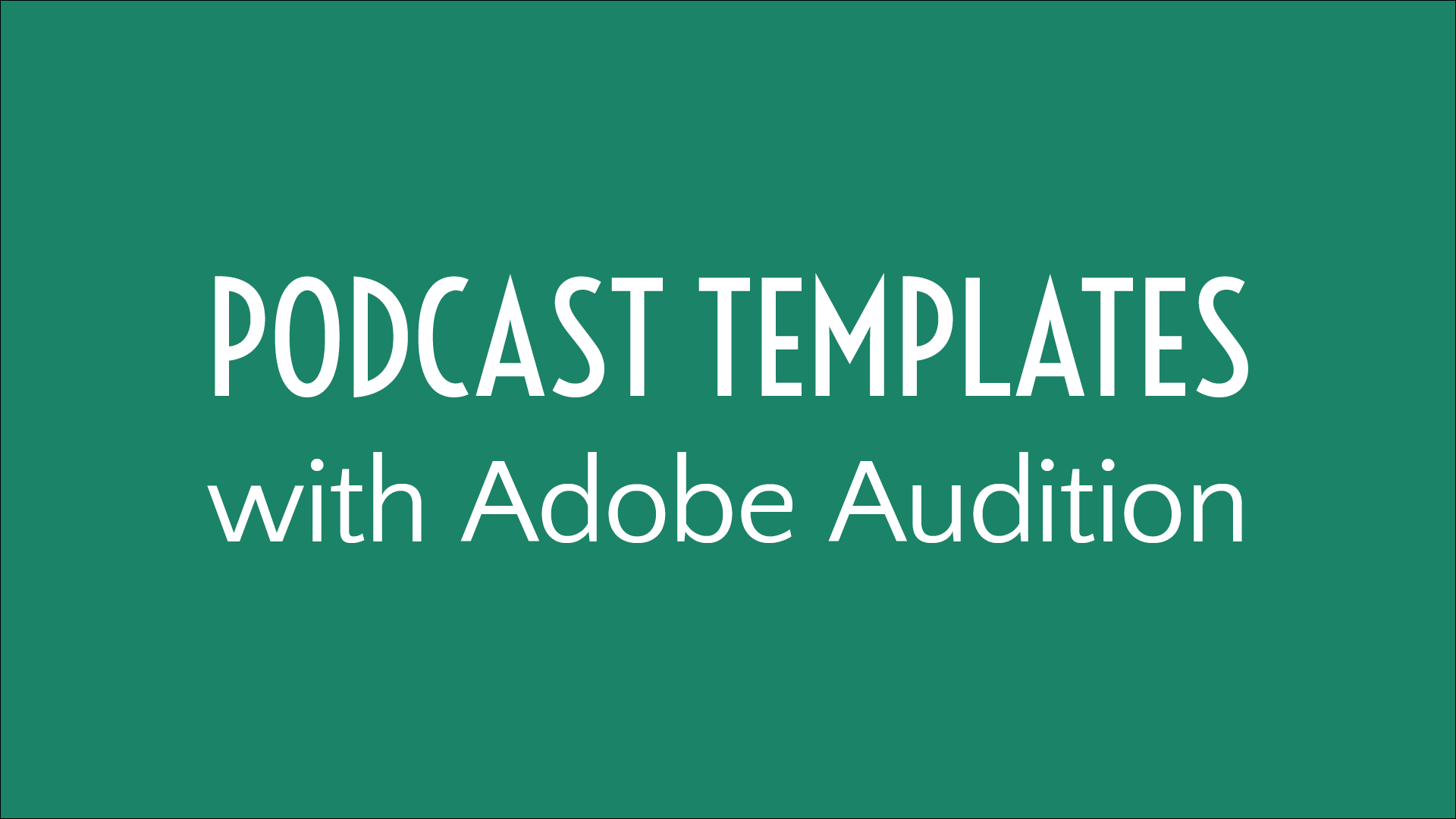

- #Adobe audition podcast sound fx how to#
- #Adobe audition podcast sound fx manual#
- #Adobe audition podcast sound fx software#
- #Adobe audition podcast sound fx series#
If Adobe Audition is your go-to audio workstation then Voice.ai is what you need to get different results that will make your work surpass others.Īudio production can mean many things, from Music to Film & TV production to even Broadcast, Video Games, or Live Sound.
#Adobe audition podcast sound fx software#
We are bigger than just an audio editor software so, say goodbye to basic voice effects that make your audio files and live recordings sound like a robot, and hello to Voice.ai. Voice.ai includes other great quality features besides the voice changer with one thing in common which is, giving you excellent results whether you record yourself directly on our app using Live Mode or upload pre-recorded audio files. In other words, you can change your voice into anything that you want, and we mean it! Want to sound like a former US president? Have the voice of a celebrity? or be the anime character you love so much, you name it, we have it. Voice.ai is an ingenious voice changer software that allows you to switch your voice to anything you can think of. Think of us as your fairy godmother because with our free software we can make that happen! Việc chọn một khu vực sẽ thay đổi ngôn ngữ và/hoặc nội dung trên you ever wondered what you would sound like with the voice of your favorite cartoon or maybe the singer that made you memorize many lyrics when you were younger? Perhaps even your childhood celebrity crush, or favorite soccer player. Note: To use the Export with Adobe Media Encoder, you must have installed the same version of Adobe Media Encoder as Audition on your computer.
#Adobe audition podcast sound fx series#
When it comes to efficient compression, smaller file size, and better audio quality, a 64-kbps AAC-HE (high efficiency) stereo file would fare better than a 128-kbps MP3.Īudition gives you a range of output and encoding options within the application or outside, such as exporting to Adobe Media Encoder.Īdobe Media Encoder includes a series of formats and presets that allow you to render and publish high-quality audio output from Audition. For mono, podcast talks, 64-kbps MP3 is used. For stereo podcasts, 128-kbps MP3 is widely used.

Recording your podcast at a higher encoding rate retains rich audio details. AAC also supports metadata that MP3 does not support, such as Chapter Markers, and embedded links and images. m4a files, offer better audio quality at smaller file sizes compared to MP3.

MP3 is the most popular format used by podcasters. The most common formats for podcast delivery are MP3 or AAC.
#Adobe audition podcast sound fx how to#
How to match, fade, and mix clip volume with Audition.Arrange and edit multitrack clips with Audition.How to use special effects with Audition.Diagnostics effects (Waveform Editor only) for Audition.Apply amplitude and compression effects to audio.Doppler Shifter effect (Waveform Editor only).
#Adobe audition podcast sound fx manual#
Manual Pitch Correction effect (Waveform Editor only).Fade and Gain Envelope effects (Waveform Editor only).Applying effects in the Waveform Editor.Analyze phase, frequency, and amplitude with Audition.How to automate common tasks in Audition.Inverting, reversing, and silencing audio.How to copy, cut, paste, and delete audio in Audition.Displaying audio in the Waveform Editor.Matching loudness across multiple audio files.Session Markers and Clip Marker for Multitrack.Edit, repair, and improve audio using Essential Sound panel.Remove silences from your audio recordings.Monitoring recording and playback levels.Navigate time and playing audio in Adobe Audition.Create, open, or import files in Adobe Audition.Customizing and saving application settings.Connecting to audio hardware in Audition.Applying effects in the Multitrack Editor.


 0 kommentar(er)
0 kommentar(er)
